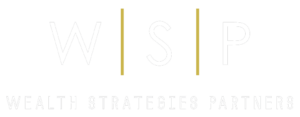Ask an Advisor w/ Caleb Boy: Personal Finance 101
If you didn’t know, April is Financial Literacy month!
This gives us a great opportunity to revisit the basics of personal finance. These are the foundational cornerstones I like to call Personal Finance 101. Whether you’re just starting in your career, a well-seasoned professional, or nearing retirement, it’s always a good idea to practice the fundamentals. I’ll give you a crash course below.
1 – Create a budget. Budgeting might be mundane to some, or exciting to you math nerds out there (like me). Whether you enjoy it or not, it is an integral part of your financial plan. Having control of your money and knowing your inflows and outflows make sure you are staying on track for your financial goals. There are many ways you can track your budget. An app on your phone, a spreadsheet on your computer, a physical printout you write into. My advice is to use what works best for you, and what keeps you on track.
2 – Pay off high interest debt. The average return of the stock market is around 10% annually. The average credit card interest rate is almost 25%. That means paying off balances on your credit card will give you a guaranteed 25% return on your money, more than double the average annual stock return.
3 – Have an adequate emergency fund. Let’s face it, life is unpredictable. That is why it is always a good idea to have an appropriate emergency fund in case of unexpected expenses. If you only have $1,000 set aside, you probably won’t be able to cover major emergencies. However, if you are sitting on a mountain of cash, you could be missing out on higher returns with that money. That is why we recommend an appropriate amount, usually 3-6 months depending on your circumstance. Not too much, not too little.
4 – Invest consistently. You might think, “when I get this raise I will start investing” or “when I pay off this debt I will start investing,” but the longer you kick the can down the road, the less time you have to let compound interest work its magic for you. Even if it means as little as $100 a month, start investing every paycheck, and slowly increase your contributions over time. A simple $100/month investment that you start at age 20 will grow to $862,685.80 by the time you are 65 assuming a 10% rate of return. However, if you wait until you are 40 to start investing $100/month, the amount you will have at 65 drops all the way down to $118,016.47. Example given is hypothetical in nature and is for illustrative purposes.
Wherever you may be in your financial journey, we are here to help you and your family. If you are curious on how these topics apply to your financial house, give me a call today at (615) 457-3481 or email me at caleb@wealthstrategiespartners.com so I can help!
Any opinions are those of the author and not necessarily those of Raymond James. Future investment performance cannot be guaranteed, investment yields will fluctuate with market conditions. Investing involves risk and you may incur a profit or loss regardless of strategy selected. Every investor’s situation is unique and you should consider your investment goals, risk tolerance and time horizon before making any investment.
